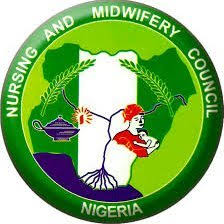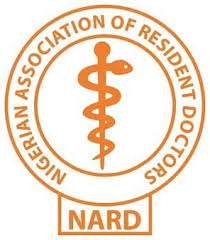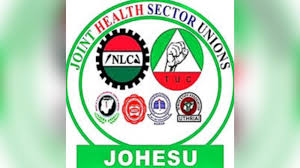The Institute of Public Analysts of Nigeria (IPAN) held its 25'" MandatoryTraini ng Workshop with the theme "The Role of Public Analysts in a Recessed Economy" on Tuesday, 25" and Wednesday, 26'April 2017 at The Events Centre, Plot 1, Hakeem Balogun Street, off Agidingbi Road, CBD, I keja, Lagos State.
The workshop was widely attended by professional members, student-members and other stakeholders from both private and public sectors numbering over Three Hundred (300).
The Chairman of the opening ceremony was the Speaker, Lagos State House of Assembly; Rt. Hon. Mudashiru Obasa, represented by the Lagos State House Committee Chairman on Information and Strategy, Hon. Tunde Braimoh.
Dr. Abiodun Osiyemi, President, Association of Forensic Sciences and Expert Witness, Nigeria delivered the Keynote Address.
There were three (3) technical sessions and a special presentation on Lagos State programmes on Economic Repositioning and Re-strategising by Lagos State Hon. Commissioner for Agriculture, Hon. Isiaka Suarau, represented by Mr. Shonekan Babatunde. The three papers presented were:
â– Essentials of Business Plan and Marketing of Laboratory Services by Mr. Tona Saks MINN, Technical Director/CEO, Technic rest Limited, Yaba, Lagos.
• Zero reject of Export Products: The role of Public Analysts by Prof. (Mrs.) Abimbola Uzomah MIPAN, Department of Food Science and Technology, Federal University of Technology, Owerri.
â– Analysis of Agricultural Products and Solid Minerals by Mr. Joseph Uponi, MINN, Manager, Analytical Services, International Institute of Tropical Agriculture (I ITA), Ibadan.
The interactive sessions provided opportunities for participants to ask questions and make valuable comments and contributions while the presenters provided answers.
OBSERVATIONS The workshop observed that:
1. The indispensable role of Public Analysts and Analytical Laboratory services in either a recessed or buoyant economy was clearly x-rayed; hence the workshop theme was appropriate and timely.
2. Dissolution of Professional Bodies' Governing Councils especially at the inception of a new administration is a contributory factor to the hindrance of the smooth running of such professional bodies.
3. Unregistered Analytical Laboratories are operating widely in the country and their services are acknowledged and accepted by various government and private organizations contrary to the enabling Act of IPAN which is tantamount to quackery.
4. Economic improvement in the face of the current recession in Nigeria is expedient and Laboratory empowerment is highly essential.
S. Micro, Small and Medium Scale Enterprises (MSMEs) contribute about 60% of producers in Nigeria, hence they must be encouraged and allowed to thrive.
6. Limited number of functional high precision laboratory equipment such as ICP-MS, GC-MS, etc. in the country for detailed analyses of samples and commodities is a major setback and contributoryfactortothe rejection of our export products in the international markets.
.png) RECOMMENDATIONS
RECOMMENDATIONS 1. Dissolution of Professional Bodies' Governing Councils should be discouraged henceforth, since they are not political appointees but elected representatives of the professional bodies.
2. IPAN as a regulatory body should intermittently publish and make available the list of registered laboratories and practising members to relevant agencies like National Agency for Food, Drug Administration and Control (NAFDAC), Standards Organization of Nigeria (SON), National Environmental Standards Regulation & Enforcement Agency (NESREA), Ministry of Environment, Department of Petroleum Resources (DPR), etc.
3. Harmonization of the roles of government regulatory agencies such as NAFDAC, SON, Consumer Protection Council (CPC), State and Local Government Agencies, etc is strongly required to reduce/remove the numerous bottle necks experienced by MSMEs leading to operational challenges.
4. The Institute should increase activities on regulation and enforcement to ensure that all analytical laboratories in the country are registered.
5. The role of IPAN in the European Union (EU) funded National Quality Infrastructure Project (NCLIP) for Nigeria should further be strengthened, particularly in the area of Agricultural produce.
6. Government should create friendly policies (grants, loan at reduced interest rate, equipment leasing, etc.) that can assist Nigerian Laboratories in acquiring high precision laboratory equipment for detailed analyses of consumer products for local consumption and export.
ABUJA: Training Schedule for Basic Life Support BLS, Pediatric Advanced Life Support (PALS), Advanced Cardiovascular Life Support ACLS, First Aid, CPR, AED
PORTHARCOURT: Training Schedule for Basic Life Support BLS, Pediatric Advanced Life Support (PALS), Advanced Cardiovascular Life Support ACLS, First Aid, CPR, AED
LAGOS: Training Schedule for Basic Life Support BLS, Pediatric Advanced Life Support (PALS), Advanced Cardiovascular Life Support ACLS, First Aid, CPR, AED




